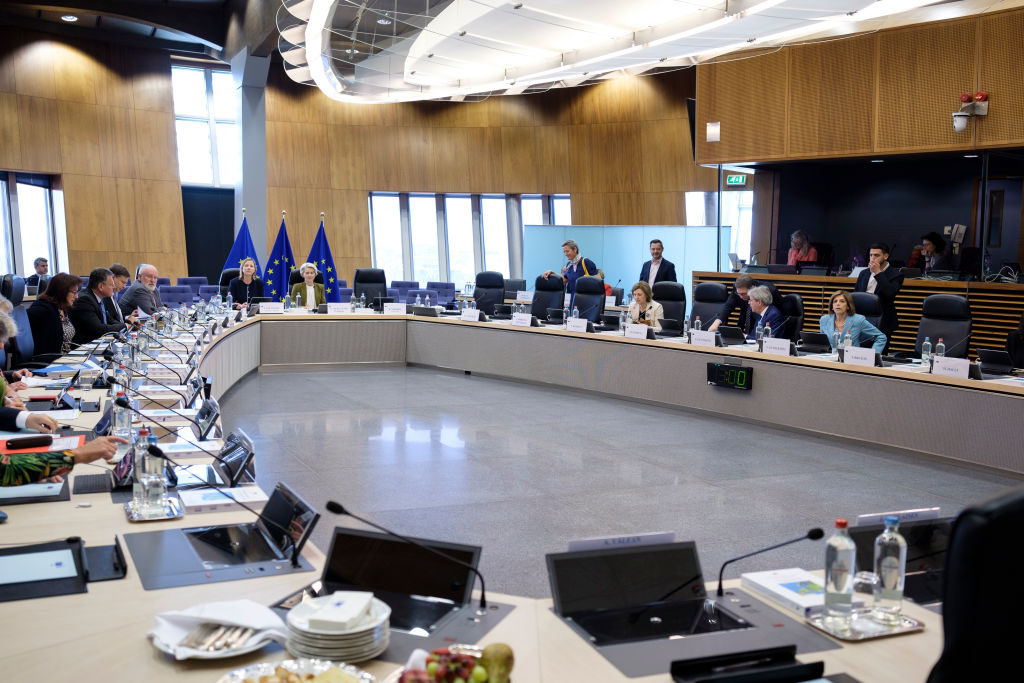The recent wildfires that have ravaged California are nothing short of apocalyptic — countless homes and acres of forest turned to ash, tens of lives lost and thousands disrupted. But as the state burns, it is hard to ignore the elephant in the room: The very policies designed to “help” marginalised communities are the ones lighting the match.
This wildfire is not just literal. It is ideological. Governor Gavin Newsom and Los Angeles Mayor Karen Bass have, through their adoption of Diversity, Equity, and Inclusion (DEI) policies, made it much harder for the state to effectively manage its forests, respond to emergencies and prevent disasters. Far from saving lives, this DEI-fication of firefighting has set the stage for larger, deadlier fires.
Let’s start with the basics: wildfires in California are big. And to manage them, you need expertise, experience, and competence, the things DEI policies do not prioritise. Instead, under Newsom’s watch, the state’s fire response has become a model of bureaucratic pandemonium, where race, gender and inclusion are put ahead of the actual task at hand: putting out fires.
The California Department of Forestry and Fire Protection (Cal Fire) used to be known for its well-trained, highly-skilled personnel. Now? Not so much. Under Newsom’s practices, more “diverse” applicants have been hired and promoted not because of their prowess with a hose, but because of their demographics. The result? An under-prepared fire service less focused on effective fire management and more concerned with ticking boxes of the progressive agenda.
It is not just about who is fighting the fires, though. It is also about how they are being fought. Enter the controlled burn, the scientifically-proven, century-old method of reducing fire risk by intentionally setting smaller, manageable fires to clear dry vegetation before it becomes fuel for larger wildfires. California has been running away from this tactic like it is the plague. And why? Because “marginalised communities” might be “disproportionately impacted.”
Yes, you read that correctly. The state has chosen to abandon one of the most effective fire prevention tools in favour of policies based on DEI principles. The excuse? Some argue that communities living near areas targeted for controlled burns are often poorer and more diverse, so we must stop doing the very thing that could prevent a disaster, so as to avoid “environmental racism.”
Instead of considering the real lives at risk and doing what is needed to stop massive fires, Newsom bowed to the idea that controlled burns might hurt someone’s feelings. Rather than implementing policies that would prevent the devastating ecological damage, he focused on performative moves like banning gas-powered lawn equipment, food dyes and small plastic shampoo bottles at California’s hotels.
Such measures, typical of Democratic dogma, grab headlines but offer limited benefit, while consuming resources that could be better directed toward actual environmental and public health crises. It is almost as though Newsom and his eco-activist base would rather see the whole state burn down than offend anyone with a little smoke.
But it is not just Newsom who is playing with fire. So is Mayor Karen Bass of Los Angeles. While Newsom has turned California’s fire response into an ideological circus, Bass is applying DEI thinking to disaster recovery.
She has made it clear that her focus is on “equitable” distribution of resources, not necessarily on getting aid to those who need it most. So, if you happen to live in an affluent, majority-white neighbourhood in LA that gets caught in a wildfire’s path, well, good luck. You will have to queue behind all those “marginalised communities” who are first in line for aid, regardless of their proximity to the disaster.
This is not just ineffective. It is dangerous. Under Bass’s regime, emergency resources are allocated with a heavy DEI lens, rather than focusing on the real, immediate needs of the people in harm’s way. Disaster relief now is not about who needs it most. It is about who can tick the right boxes on Bass’s list.
And don’t even get started on the emergency response teams, which are increasingly hired and deployed based on their “diversity” rather than their ability to fight fires and save lives. Just what we need when a wildfire is raging: More attention to gender ratios and ethnic quotas in fire brigades.
Unfortunately, this latest inferno leaves no doubt: The DEI agenda is not just a policy. It is a wildfire in and of itself. The same policies that aim to protect the marginalised are actively putting them at greater risk. Progressive fixations are not just annoying or costly. They are deadly.
In the end, California’s leadership obsession with burning down the old system of competence has only sparked disaster — literally and figuratively. In a state that boasts the world’s fifth largest economy, “social justice” and the fanaticism of politicians have fanned the flames in more ways than one.





Greece: corrupt elites bring a nation to its knees, Brussels beware